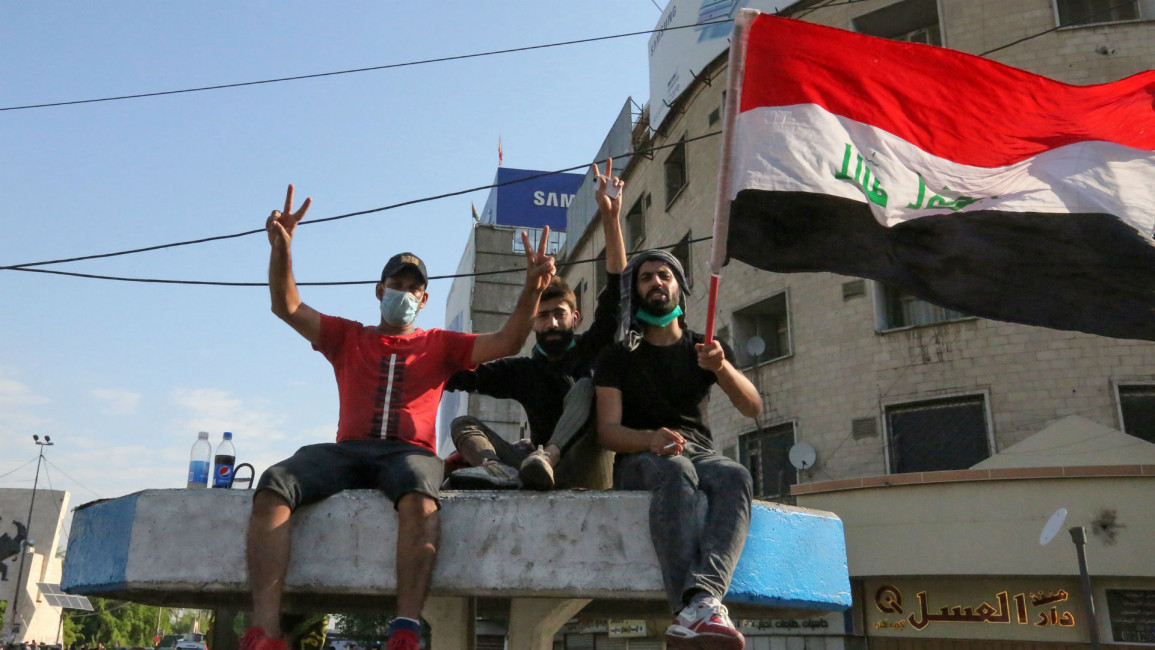Iraq protesters defiant ahead of parliament session despite deadly crackdown
Demonstrators tried to reach Baghdad's high-security Green Zone on Saturday morning, where parliament is scheduled to "discuss protesters' demands, cabinet's decisions and the implementation of reforms" later in the day, according to its agenda.
Security forces fired tear gas to force protesters away from Tahrir (Liberation) Square and the adjacent Al-Jumhuriya bridge, which leads to the Green Zone, home to government offices and foreign embassies.
Authorities erected concrete barriers and barbed wire around government buildings and deployed security reinforcement on Saturday, witnesses told The New Arab.
That followed a brutal day in the capital and across the south on Friday, when 42 protesters were killed from live rounds, wounds sustained from tear gas canisters and in fires set to government and paramilitary offices.
Security forces imposed a curfew across several southern provinces on Friday, a move also implemented earlier this month in the first wave of anti-government protests.
On Saturday, the curfew was extended "until further notice" in Karbala and Maysan, The New Arab's local reporter confirmed.
Among the provinces targeted was Basra, which was swept up in its own wave of protests last year over moribund public services, with outraged citizens also burning government and party offices.
 |
A first wave of protests erupted on October 1, demanding an end to corruption and unemployment before escalating to calls for an overhaul of the political system.
More than 150 people were killed, according to a government probe, most of them protesters in Baghdad who died of gunshot wounds to the head or chest.
In response, authorities have pledged a laundry list of measures including hiring drives, increased pensions and a cabinet reshuffle.
New education and health ministers were approved by parliament earlier this month, the only time it was able to reach quorum since protests began.
But protesters seemed unimpressed and called for a resumption of nationwide demonstrations on October 25.
Parliament speaker Mohammed al-Halbusi said he had visited protesters overnight in Tahrir, but many demonstrators have shunned the participation of mainstream politicians whom they see as trying to co-opt their movement.
Baghdad ranks as OPEC's second-biggest oil producer - but it is also the 12th most corrupt nation in the world, according to Transparency International. One in five Iraqis lives in poverty and youth unemployment sits around 25 percent, according to the World Bank.
This year's demonstrations are seen as unprecedented due to their independence from any political or religious faction and the violence with which they have been met.
Follow us on Twitter: @The_NewArab



